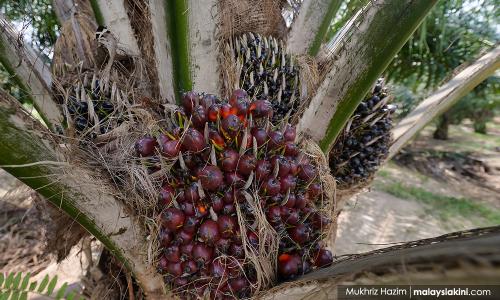Palm oil regulator to wield stick to get consumer goods giants to go green
A palm oil industry watchdog will adopt rules next month that will impose fines on consumer goods companies like Unilever and Nestle if they don't start buying more green palm oil to help curb deforestation in Southeast Asia, the regulating body said.
Producers of palm oil, a commodity used in everything from ice cream to lipstick, are blamed for destroying millions of hectares of forest in Southeast Asia, in part by using slash-and-burn techniques that blanketed Singapore, Malaysia and Indonesia in smog in September.
The growers, though, say palm oil buyers like Unilever, Nestle, Procter & Gamble Co and PepsiCo share responsibility because they don't buy enough sustainably produced oil, undermining efforts to reward those who adopt greener practises and reduce deforestation.
Last year, growers produced around 13.5 million tonnes of green palm oil - which costs more to grow and process - but only about half of it was sold at premiums to conventional palm oil.
"We are not seeing new demand for sustainable palm oil," said Mohd Haris Mohd Arshad, downstream managing director of Sime Darby Plantation, the world's biggest producer of the environmentally friendly variety.
"How do you get others to move towards (sustainable methods) when there's not even an incentive for it?"
Planters received premiums of up to US$50 a tonne for green palm oil right after certification was launched in 2004, but now they get as little as US$1 to US$30 over conventional palm oil prices of around US$500 a tonne.
That makes it hard to cover the extra costs of sustainable palm oil, which, according to Simon Lord, chief sustainability officer at Sime Darby, amount to US$8-US$12 a tonne, not including staff expenses.
Green palm oil goes to Europe
Cark Bek-Nielsen, chief executive of United Plantations, said the consumer goods companies are not doing their part: "When push comes to shove the only thing holding them back is their fear of having to pay a slight premium."
To force the issue, the Roundtable on Sustainable Palm Oil (RSPO) - a regulator whose members include consumer companies, retailers, traders and palm growers - will for the first time make it mandatory for buyers to increase their purchases, according to new draft regulations.
The rules, to be implemented in November, will require RSPO members who buy palm oil to increase the proportion of their sustainable purchases by 15 percent every year or face fines and possible suspension from the green initiative body.
When asked about the rules, the big consumer firms said they have pledged to eventually use only green palm oil in their products, but also that there are still supply reliability and transportation issues to overcome.
Only a fifth of last year's global palm oil output of 68 million tonnes had RSPO sustainable certification, which requires growers to meet standards on protecting forests, workers' rights and transparency.
Part of the problem, the producers say, is that the goods companies buy sustainable oil mostly for products sold in Europe, and not for goods for India and China, the world's biggest palm oil markets and where price drives consumer demand.
Nestle told the RSPO that last year 56 percent of the palm oil it used in Europe was sustainable, while only four percent was green in India and none was in China. For Unilever, 97 percent of its palm oil used in Europe was green, compared with 41 percent in India and 48 percent in China.
Nestle said it was committed to achieving RSPO sustainable certification for 100 percent of its palm oil by 2023.
"Achieving a sustainable palm oil industry [...] requires all companies in the supply chain to take action," a Nestle spokeswoman told Reuters by email.
Gemma Shaw, a Unilever spokeswoman, said her company was also committed to sustainable palm oil.
"Although consumer demand [...] does vary from market to market, our commitment is a global one," Shaw said, adding that the RSPO numbers were old and that Unilever has made progress since then.
Pepsi and Procter & Gamble did not respond to requests for comment.
- Reuters
RM12.50 / month
- Unlimited access to award-winning journalism
- Comment and share your opinions on all our articles
- Gift interesting stories to your friends
- Tax deductable

